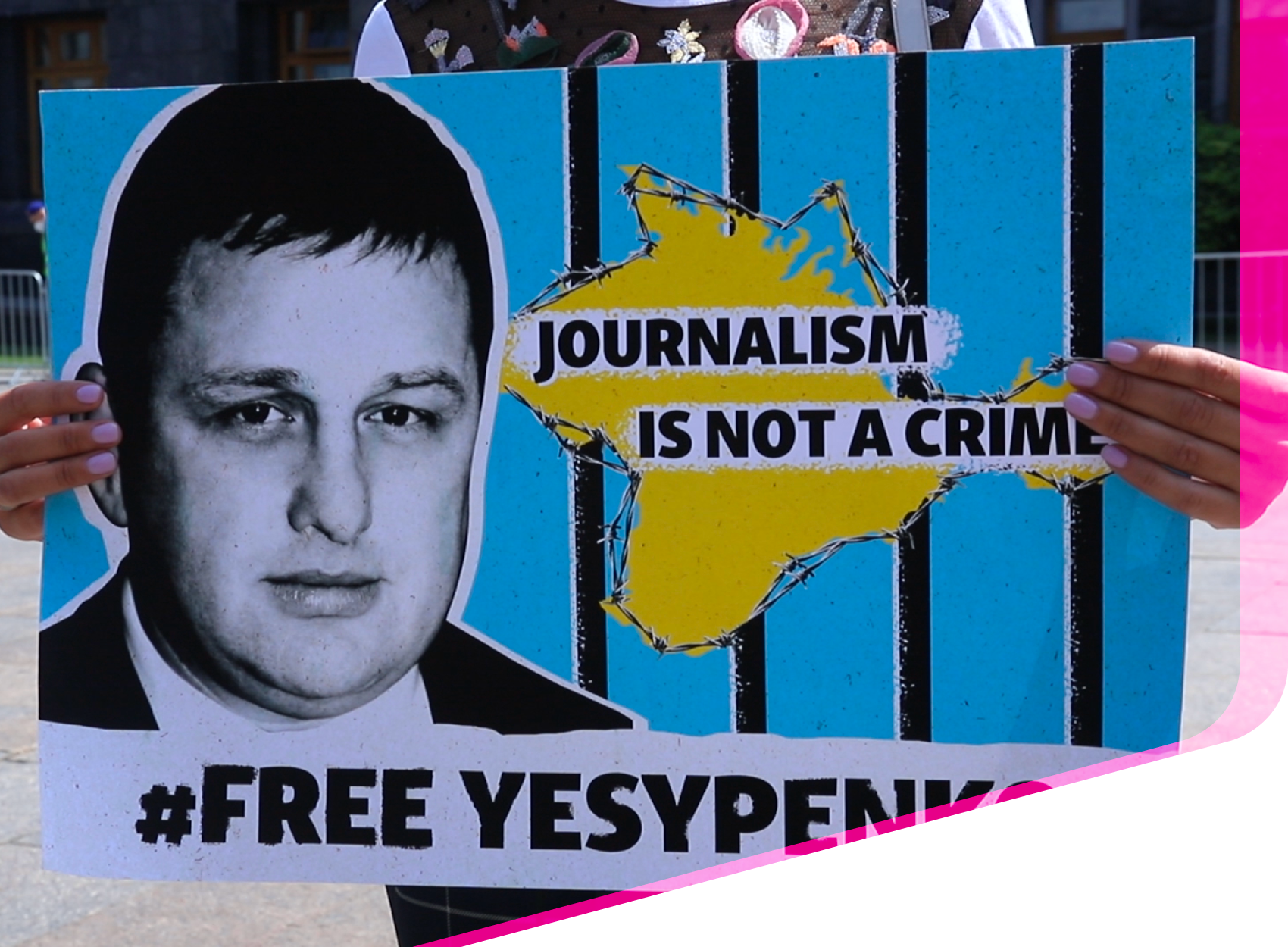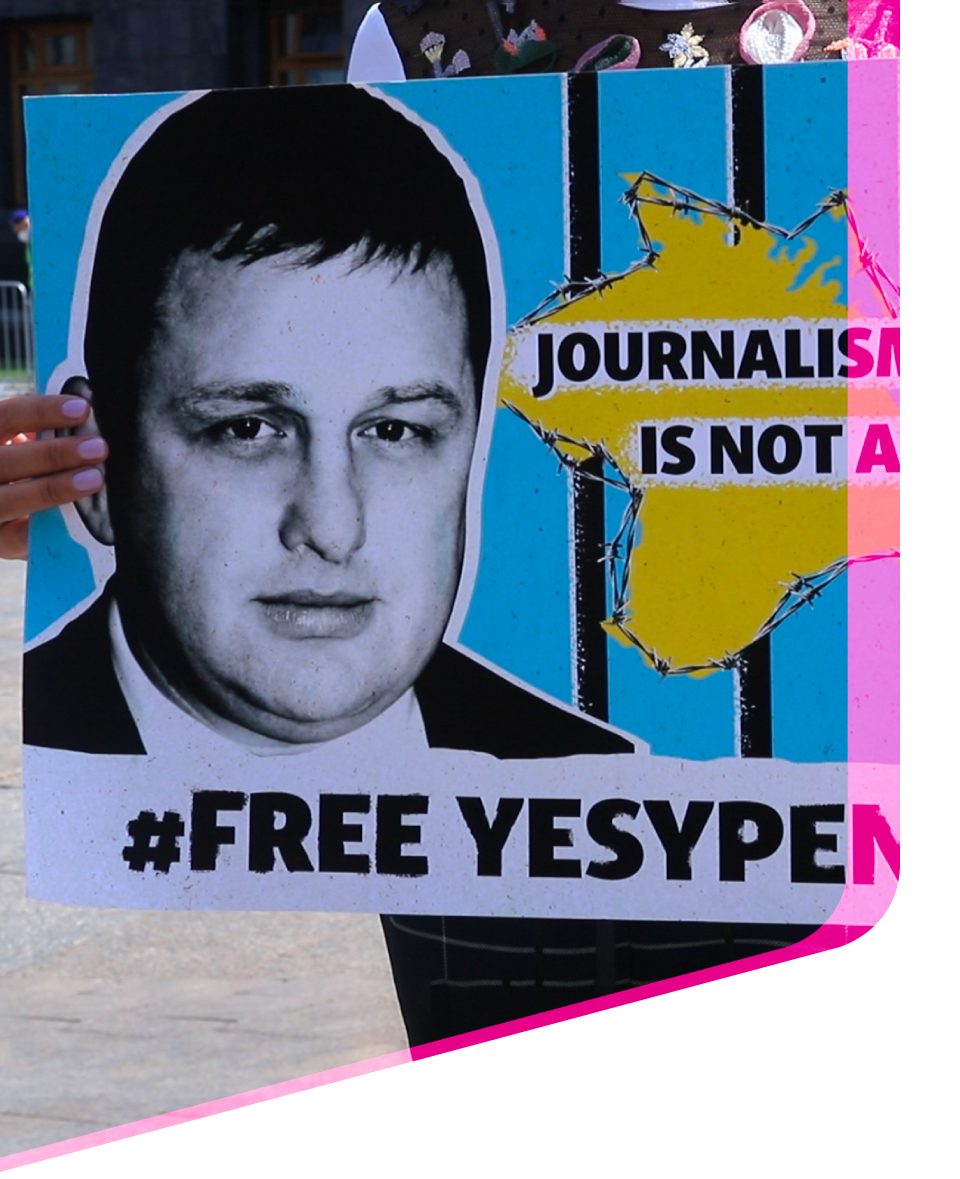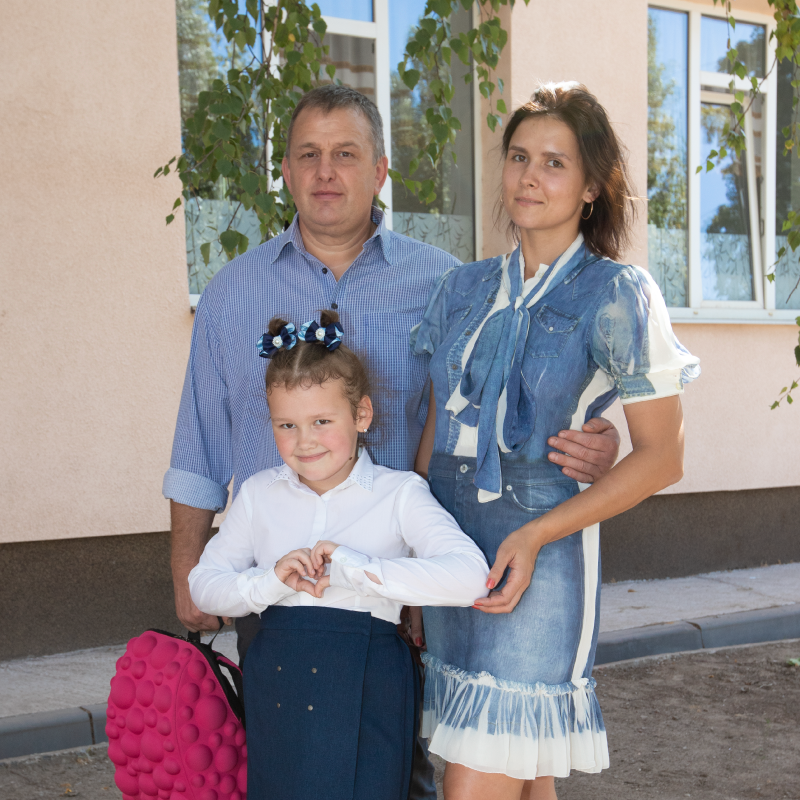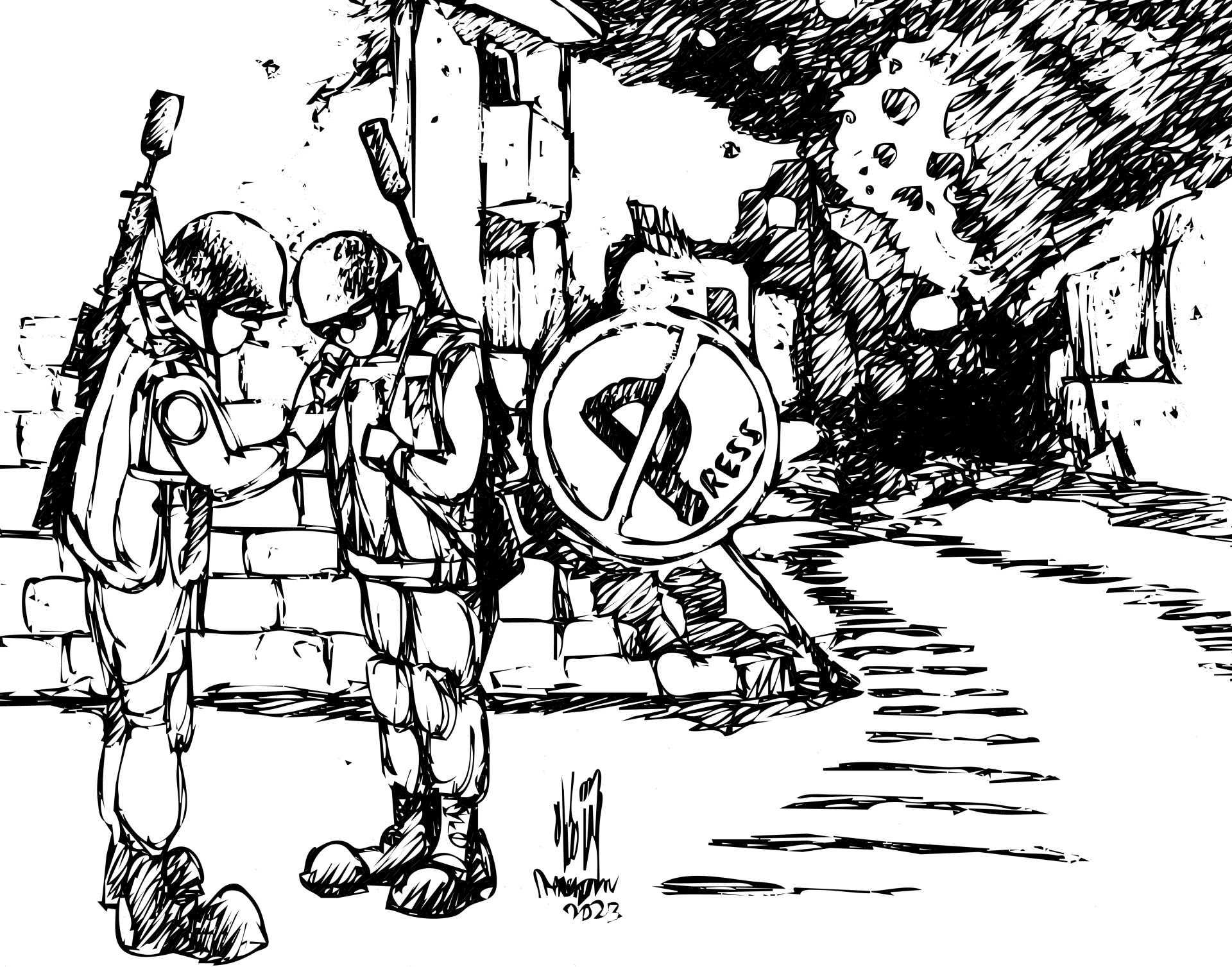
Ukraine
Ukraine
Ukraine
Vladyslav Yesipenko
Vladyslav Yesipenko
Vladyslav Yesipenko
Journalist and Political Prisoner
Journalist and Political Prisoner
Journalist and Political Prisoner

Ukraine
Vladyslav Yesipenko
Journalist and Political Prisoner
„Vladyslav was tortured for two days, from the moment of his arrest until he was placed in the Simferopol Pre-Trial Detention Centre.“
– Kateryna Yesypenko, wife of Vladyslav Yesipenko –

VITA
Vladyslav Yesypenko was born on 13 March 1969 in Kryvyi Rih, Dnipropetrovsk region and lived in Sevastopol (Crimea). Having actively protested the occupation of Crimea in 2014, he was forced to move back to Kryvyi Rih with his wife and daughter. Sensing a great need to report the truth about the situation on the peninsula, Vladyslav Yesypenko began to actively cooperate with the online publication Krym.Realii (a project of Radio Free Europe/Radio Liberty) in 2016. He visited Crimea, where he filmed his reports and simulcasts on various socially important topics. On 10 March 2021, Vladyslav Yesypenko was detained by the occupiers during one of his trips to Crimea, after filming an event celebrating Taras Shevchenko’s birthday in Simferopol. He was accused of manufacturing and storing explosives. Vladyslav Yesypenko was tortured and forced to confess to the actions he was accused of. On 16 February 2022, the so-called Simferopol District Court sentenced the journalist to six years in prison with a fine of 110,000 rubles. In August 2022, the court of appeal in Simferopol reduced the sentence to five years in prison.
An interview with Kateryna Yesypenko, the wife of Vladyslav Yesypenko
Please tell us about the situation of press and the role of independent journalists in occupied Crimea.
Since the illegal occupation of Crimea by the Russian Federation, freedom of speech is being suppressed and journalists are being persecuted. Journalists face beatings, fines, damage and confiscation of equipment, illegal detentions, torture and threats, murders, etc. Indeed, Crimea is cleared of professional journalists who were against the occupation. Instead, a journalists movement has been formed by the citizens, i.e. the information and news are collected and distributed around by people who have nothing to do with this profession. They do it at their own risk. My husband Vladyslav Yesypenko is one of these individuals. He and other journalists in Crimea, who spoke up honestly about the occupation of the region, about economic and social problems, immediately faced resistance and aggression from the occupying authorities. Crimean journalists who remained faithful to their professional duty and to Ukraine keep working despite all the difficulties. Their day to day work keeps the “Crimea problem”, which created a precedent for the most brutal violation of the world order, in the public consciousness. They remind us daily that Crimea is part of Ukraine and believe that Crimea will return to Ukraine.
How long did Vladyslav work as a journalist and why did he decide to take risks every time by visiting Crimea for his reports?
My husband and I lived in Crimea since the beginning of 2013. After moving from the peninsula, Vladyslav occasionally visited Crimea to collect information on assignments from editors, to film on various locations and interview Crimean residents on issues of social importance. For several years he published his reports from Crimea, in which people told the truth about life on the peninsula, on the website of Krym.Realii. On the assignment before his arrest, Vladyslav had already been filming reports on the peninsula for several weeks. On 10 March 2021, he was detained while performing an assignment for Radio Liberty. Actually, Vladyslav never discussed the risks of detention with me, perhaps wishing to protect me. However, as I found out later, he had phone numbers of Crimean lawyers from the editorial office of Radio Liberty.
How did you find out that Vladyslav Yesypenko was arrested?
On 10 March 2021, Vladyslav stopped communicating with me, which caused immediate concern, because this had never happened before. On the same day, I contracted a lawyer to authorize him to search for Vladyslav and represent him. The lawyer learned that Vladyslav was detained by the FSB and he was not allowed to meet with him. We saw Vladyslav publicly for the first time after his arrest on 6 April 2021, during a court session. Independent lawyers were not allowed to visit him for almost a month. For obvious reasons, they waited for the signs of torture to disappear. For our daughter Stefania, we first came up with fairy tales about a bird in a cage. Now, she is old erenough and understands everything, she is proud of her dad and is looking forward to meeting him.

What had been happening before Vladyslav’s case became public?
Vladyslav was tortured for two days, from the moment of his arrest until he was placed in the Simferopol Pre-Trial Detention Centre. He was beaten on his body, legs and genitals. FSB officers also attached contacts to his earlobes and head and connected them to the electric current to inflict unbearable pain. Once he more or less got used to it, the current was increased further. In addition, the FSB threatened him that unless he confessed, he would be foundhanged in his cell and everything would be framed as a suicide. I believe that it is vital to talk more at all levels about those who are imprisoned by the Kremlin. It is essential to draw the attention of the international community to every human life. When you tell the details, people stop being just statistics. Once more is known about such prisoners, they are wary of torturing them. Publicity saves from torture.
What difficulties arose for you with the start of a full-scale invasion of Ukraine?
Due to the almost complete isolation of Crimea from mainland Ukraine, receiving information from there has become more challenging for us, and it is more dangerous for our citizens in Crimea to communicate with us. In general, our relationship with my husband is one-way; he is able to call sometimes. This way, we can exchange news, learn about needs and determine avenues for further legal defence. The entire time of the full-scale military invasion of Russia into Ukraine, representatives of the Wagner PMC have been occasionally visiting the prison to recruit prisoners for the war. However, no one has been forced to go to war against their will.
How is the solidarity among the prisoners and does Vladyslav plan to continue his work as a journalist in the future despite everything?
While in Simferopol Pre-Trial Detention Centre No.1, Vladyslav got to know many illegally detained Ukrainian citizens whose imprisonment was politically motivated. It is important to have like-minded people in such physically and psychologically challenging conditions, to support each other and to feel supported from the outside. This is how human rights defenders got information and the opportunity to help our citizens in pre-trial detention centres. Vladyslav also writes letters about his dreams and plans for the future. I am glad he has them at all, given the state of affairs today. The main dream is the victory of Ukraine in the war against Russia. And it will come true.
Ukraine
